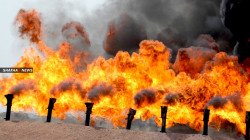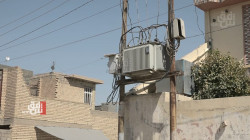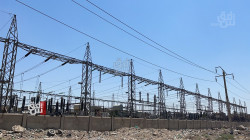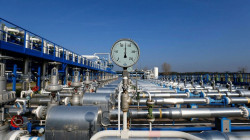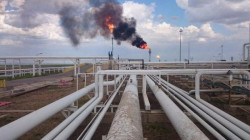Beyond Iran: Iraq's multi-pronged approach to electricity imports
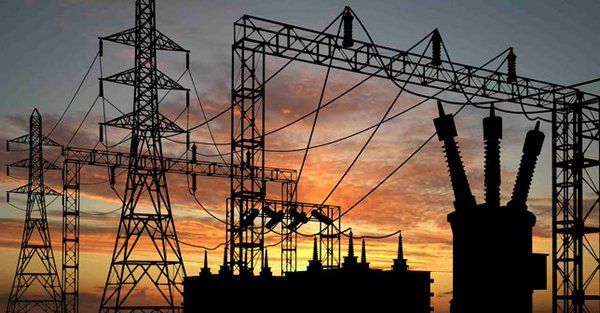
Shafaq News/ Iraq is considering linking with neighboring countries' power grids to import much-needed electricity in summer, the Ministry of Electricity said. The move, while seen as a potential solution to meet peak summer demand, is unlikely to replace domestic generation or Iranian gas imports, according to ministry spokesperson Ahmed Moussa.
"Grid interconnection will offer additional power supply, improve grid reliability, and allow Iraq to secure the electricity it needs to enhance overall performance and stability," Moussa told Shafaq News Agency. "However, it is not a standalone solution and won't eliminate our reliance on Iranian gas."
Current and Future Grid Interconnections
"The link with Jordan, in its first phase, has entered into operation, and for the first time, al-Rutbah district is supplied with electricity through the Iraqi-Jordanian link," Moussa said. The second phase of the project, which will extend the link to al-Qaim district in al-Anbar, is expected to be completed by the end of this year, he added.
Moussa noted that the ministry had obtained cabinet approval to proceed with the electricity link with Turkiye, with a tariff to be agreed upon with the Turkish side to supply the northern region with 300 megawatts. Iraq is also expanding its electricity grid through a series of regional connections in order to reduce its reliance on Iranian gas imports and ensure a stable power supply.
Gulf Interconnection and Saudi Arabia Link
The first phase of the Gulf interconnection project is expected to be completed by the end of this year, providing an additional 500 megawatts of power to the southern province of Basra. Additionally, Iraq is moving forward with a separate electricity link with Saudi Arabia, with an initial capacity of 1,000 megawatts. The technical consultancy contract has been signed, and the route of the lines, connection points, mechanism, and quantity of power have been determined.
Baghdad is relying on these electricity link projects with neighboring countries to secure a stable power supply without the need for fuel to operate its power plants, given the instability of Iranian gas supplies. Recent disruptions in Iranian gas imports have caused Baghdad to lose more than 4,000 megawatts due to gas shortages and the shutdown of interconnection lines with Iran.
US Pressure and Alternative Gas Imports
The United States has been pressuring Iraq, OPEC's second-largest oil producer, to reduce its dependence on Iranian gas. The country continues to flare some of the gas associated with crude oil production due to a lack of facilities to process and convert it into fuel.
Economic expert Nabil al-Marzooqi said Iraq should weigh more on solar power as a way to reduce its dependence on Iranian gas imports and meet its growing energy needs. "Even if we were to invest in all of Iraq's associated gas, it would not be enough to meet the needs of our power plants," al-Marzooqi told Shafaq News agency. "We are talking about 25-26,000 megawatts. Iraq might be able to dispense with Iranian gas if its production capacity stops at this level, but if it increases to 42,000 megawatts, we will need Iranian gas again."
Al-Marzooqi expected that Iraq would still need Iranian gas for the next ten years, "so we need to build power plants that rely on other energy sources, such as solar power. This is what Iraq is actually working towards, with plans to build solar plants with a capacity of 6,000 megawatts."
"Iran is also facing a problem in meeting domestic gas demand due to a lack of investment in this sector as a result of US sanctions."
Iraq imports electricity and gas from Iran to meet between a third and 40% of its energy needs, which is critical, especially during the summer months when temperatures reach 50 degrees Celsius and energy consumption peaks. Iraq is facing difficulties in paying for these imports due to US sanctions that only allow Iran to receive funds for the purchase of non-sanctioned goods such as food and medicine.
The country is aware that it cannot completely eliminate its reliance on Iranian gas even if it completes electricity links with neighboring countries, according to economic expert Mohammed al-Hasani. "We are talking about Iraq receiving 2,000 megawatts from this link, while the country's need is more than 10,000 megawatts," al-Hasani told Shafaq News agency.
"US pressure on Baghdad to reduce its dependence on energy imports from Iran has prompted Iraq to sign a preliminary agreement with Turkmenistan to import gas from it, and is also seeking to import gas from Qatar, in addition to signing electricity link agreements with neighboring countries," he added, noting that "Iraq will remain dependent on Iranian gas in the short term."
In August 2023, Iraq announced the signing of a preliminary agreement with Turkmenistan to import gas from it to meet part of the needs of the country's power plants. Since the 1990s, Iraq has been relying on a system of scheduled power cuts due to low levels of electricity generation, and residents rely on private generators to make up for the shortfall.
